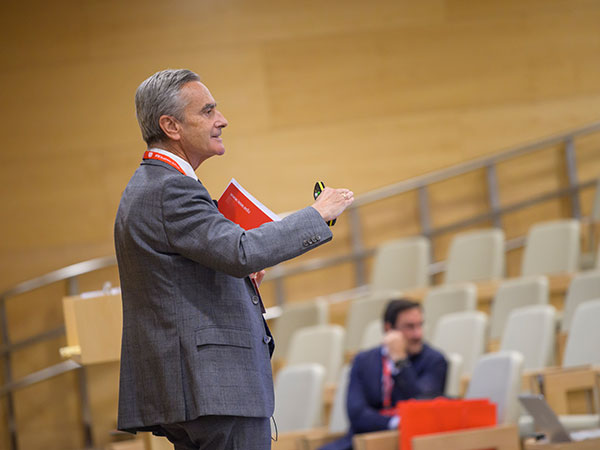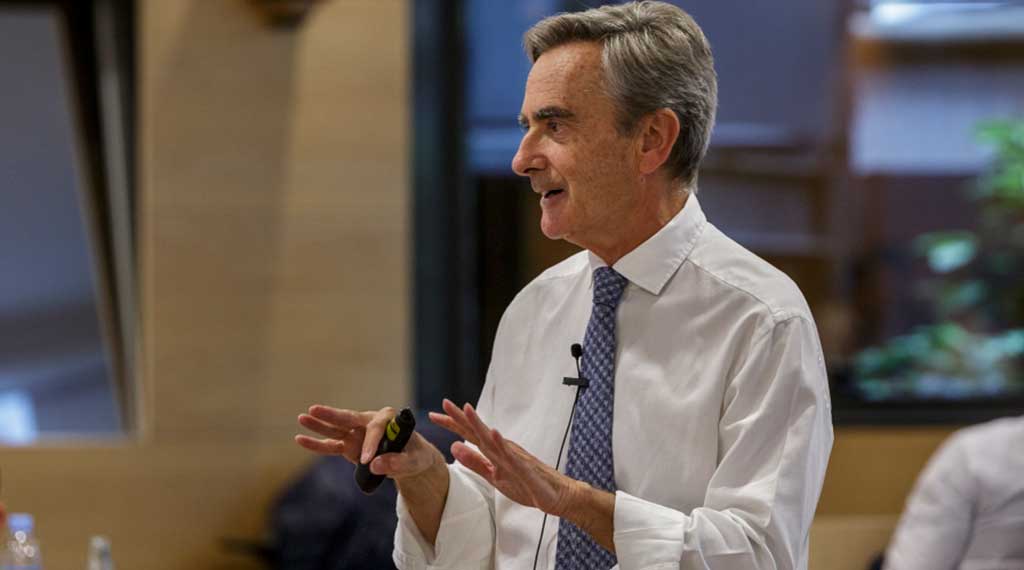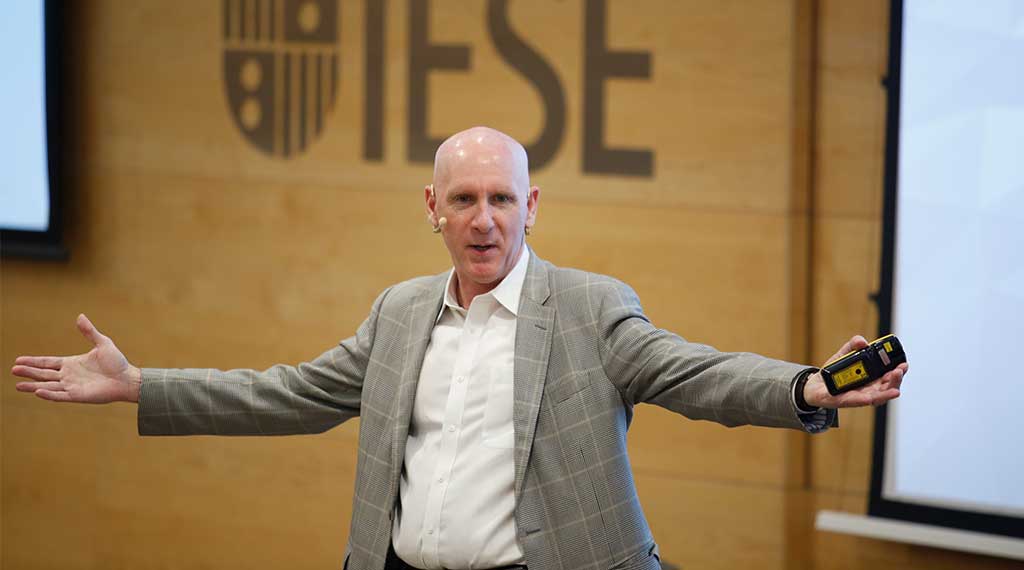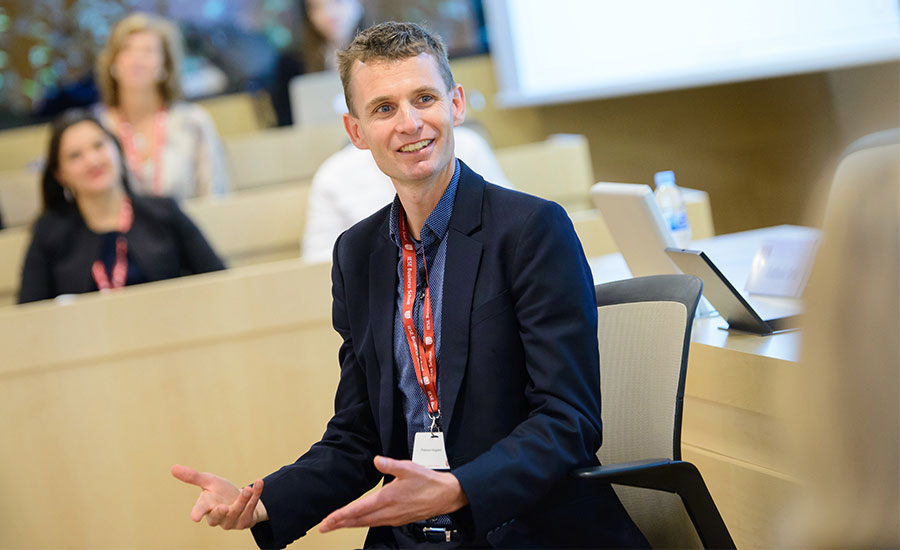Stories
Digital transformation, leadership and people
IESE’s 6th Executive Coaching Symposium discusses how technology is changing companies
Dr. Riza Kadilar speaks at IESE’s 6th Executive Coaching Symposium in Barcelona.
Photo: Paul MacManus
November 11, 2021
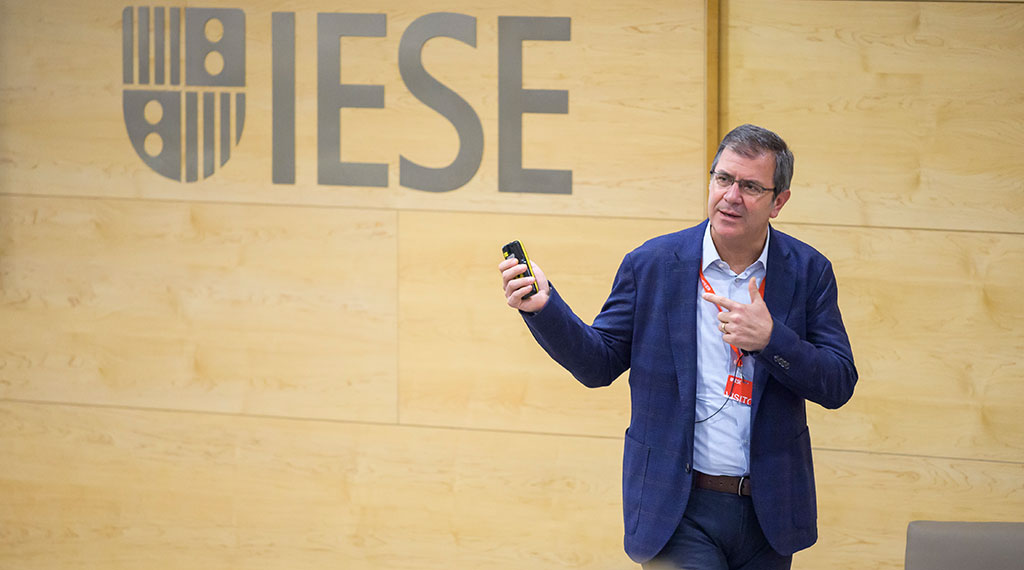
Digital transformation is the corporate development of our times. But beyond offering digital customer experiences or incorporating digital technology into a firm, what else does it mean? How does it affect employees and leaders? And at what point is it safe to say a company is effectively “digitally transformed”?
IESE’s 6th Executive Coaching Symposium gathered leading experts in the field of digitalization as well as coaching and mentoring to delve into ways companies can execute their digital transformation. The symposium was organized by IESE’s Executive Coaching Unit, which provides coaching across IESE programs and researches key areas in the field.
Here, six key takeaways on how companies and their leaders can adapt to prepare for a truly digital transformation.
- Know your ecosystem. Think Amazon. Today, offering clients multiple services and products under your company’s specific umbrella is crucial. IESE Prof. Luis Ferrándiz and Dr. Riza Kadilar, President of the European Mentoring & Coaching Council, stressed that in today’s world, it’s all about ecosystems. “Digital players see it’s not about one industry or one sector but about the client,” Ferrandiz said. “Choose your ecosystem,” Kadilar added.
- Be bold. To win in the digital transformation, you have to take bold bets. This means letting go of the way you think about managing your business. A change in business model needs to be on the table, not just to thrive, but for your company’s survival over the next 30-40 years. Ferrándiz advised that if you don’t see your company taking the steps to change, leave it, because “it won’t survive.”
- Dig deep. To digitally transform, it takes more than several projects that generate some impact, which is much easier to do. Ferrándiz encouraged attendees to change core aspects of their business and to “not focus on short-term initiatives that generate impact but don’t change the structural backbone of the company.” This is a transformation, after all. He continued that other intangibles need to change too: “Companies rank culture and organization as the roadblocks to a successful transformation.”
- Follow the leader. According to Ferrándiz, there’s a demonstrated correlation between having a company with an executive with a strong message and digital success. It takes “someone who knows where the company is and where it needs to go,” he said. He warned though that if the Board and shareholders aren’t on the same page, it’s nearly impossible for any real transformation to occur. Too often, they’re worried about the short-term impact and stock of the company, he said. “Boards of directors have to be in on the change.”
- Be agile. “Clients hear about being agile and want to be agile, but it’s not so straightforward,” according to Kadilar. The expert coach pointed out that today 20 years of experience in a sector doesn’t necessarily mean relevant experience anymore. You need to make the operating model more agile, and quicker. “It can’t take you six months to launch a new initiative,” Ferrándiz added. “Rapid innovation and execution must be at the core of the company’s DNA.”
- Technology, technology, technology. “You won’t lose your job to a robot. You’ll lose it to someone who knows how to work with a robot,” Kadilar said. Today technology is core, not a “nice-to-have”. Ferrándiz clarified, “Digital is how a company performs in the digital environment. Technology is beyond that; it touches digital because it’s the backbone of the digital interface,” he said. And technological knowledge is required of everyone, to varying degrees – from a recent hire to members of the board.
The symposium also included an expert panel of CEOs, human resource directors and senior managers from a broad range of sectors who shared their frontline insights and experiences of how digitalization has affected their areas, and how coaching is contributing to keeping the “human” in a world in which artificial intelligence increasingly holds sway.


